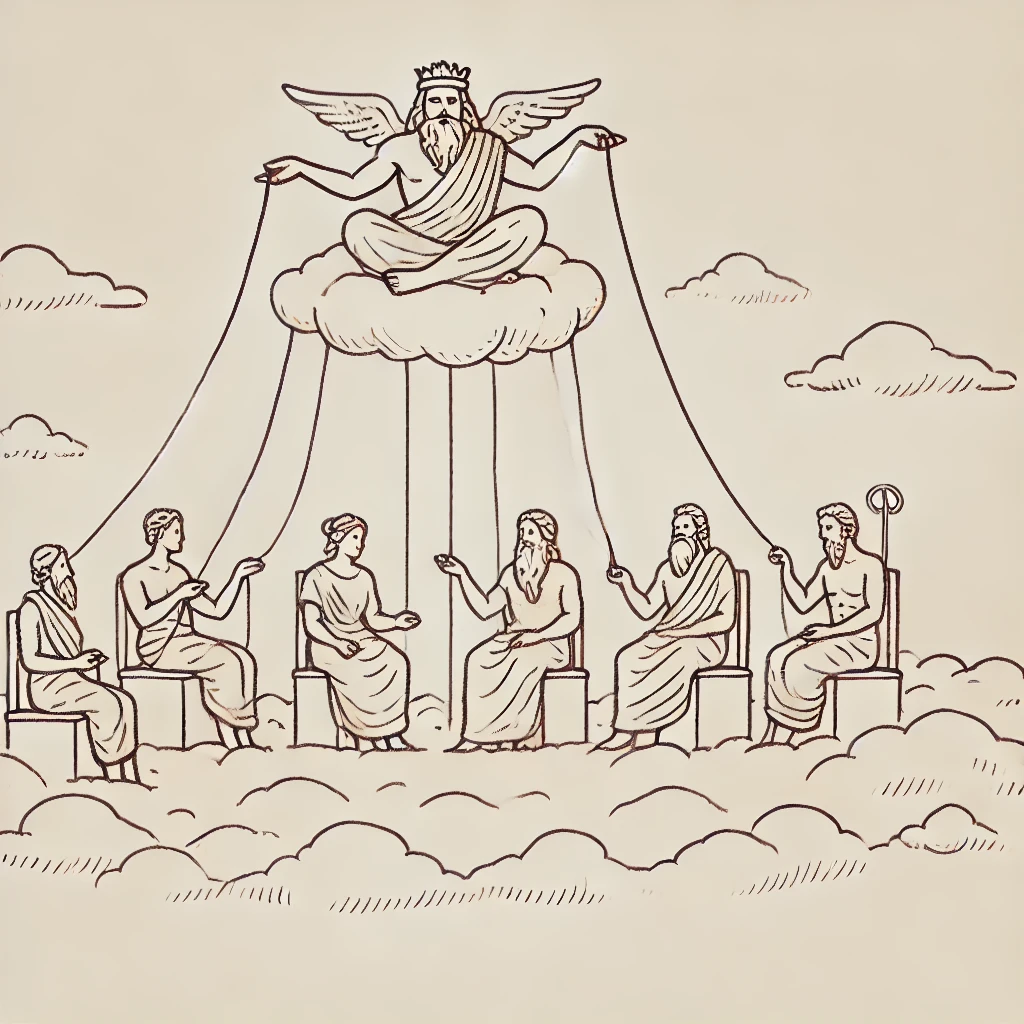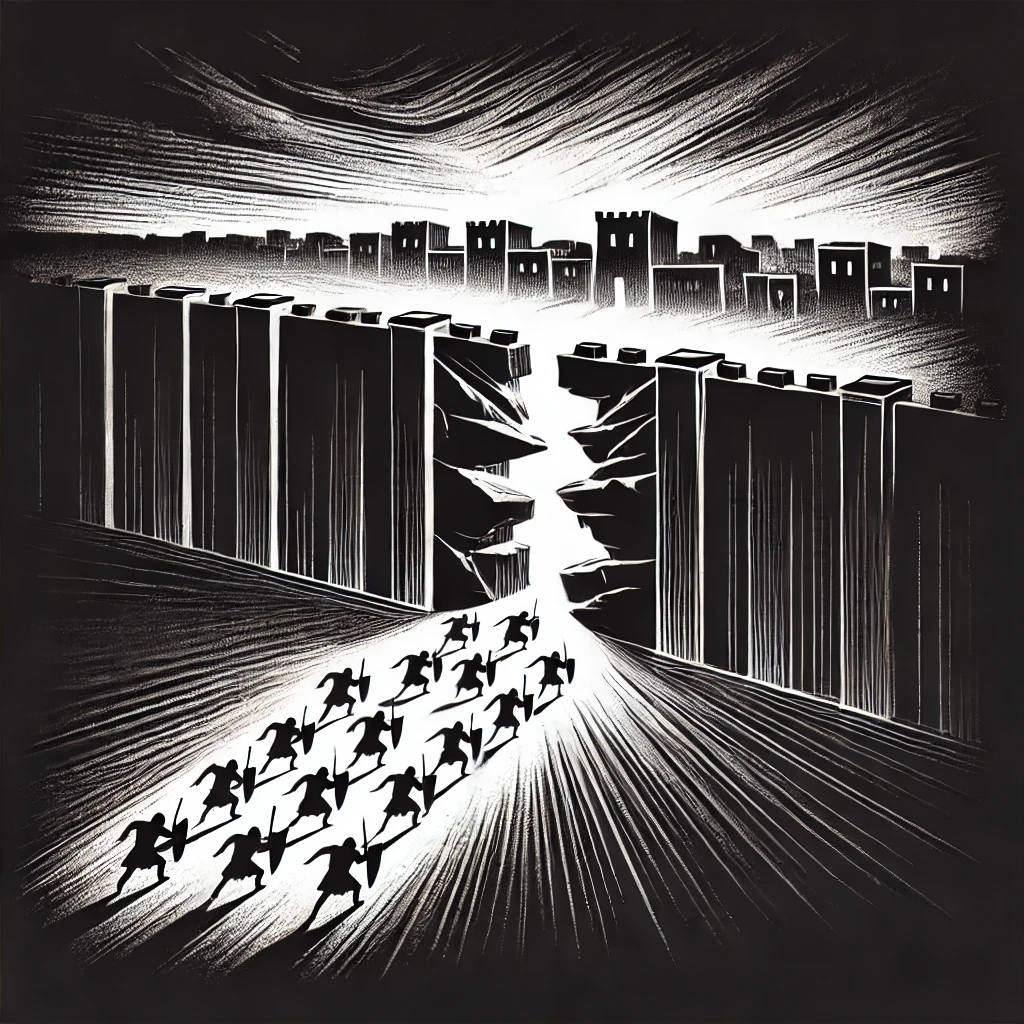Fate
Definition
Fate refers to the development of events beyond a person's control, regarded as determined by a supernatural power.
Parts of Speech
- Noun
Pronunciation
American English
- IPA Pronunciation: /feɪt/
- Respelling: FAYT (with "FAYT" as in "date")
British English
- IPA Pronunciation: /feɪt/
- Respelling: FAYT (with "FAYT" as in "date")
In both dialects, "fate" places the primary stress on the entire syllable. The pronunciation is the same across both American and British English, focusing on the clear articulation of "FAYT."
Etymology
The word "fate" originates from the Latin word "fatum," meaning "that which has been spoken," derived from "fari," meaning "to speak." In Roman mythology, the Fates (known as "Parcae") were three goddesses who controlled human destiny. The term was adopted into Old French as "fat" and later into Middle English as "fate," retaining its association with destiny and the inevitable.
Derivatives
- Fatal (adjective)
- Fateful (adjective)
- Fatefully (adverb)
- Fatalism (noun)
- Fatalistic (adjective)
Synonyms
- Destiny
- Predestination
- Fortune
Antonyms
- Choice
- Free will
- Control
Usage
The term "fate" is commonly used in literature, philosophy, and everyday language to discuss the idea of predestination or the belief that events are out of human control and guided by a higher power. It can also be used more casually to refer to the ultimate outcome of events or actions.
Related Terms
- Karma: The sum of a person's actions in this and previous states of existence, viewed as deciding their fate in future existences.
- Chance: The occurrence of events in the absence of any obvious intention or cause.
- Providence: Protective care of God or nature as a spiritual power.
Detailed Definition
Noun
- Predestination: Refers to the belief that the course of events in life is determined by a supernatural power and is beyond human control.
- Example: Many ancient cultures believed that fate was controlled by the gods and that humans could not change their destiny.
- Inevitable Outcome: Used to describe the final result or outcome of a series of events, often perceived as unavoidable.
- Example: The fate of the city was sealed when the enemy forces breached the walls.
- Personified Force: In mythology and literature, fate is often personified as a force or deity that controls the destinies of humans.
- Example: The Greek Moirai, or Fates, were three sisters who spun, measured, and cut the thread of life, determining each person's fate.
fate



🇨🇳 Mandarin
- 命运 (mìngyùn)
- IPA: [mìŋ.ỳn]
- Respell: ming-yun
- 宿命 (sùmìng)
- IPA: [sù.mìŋ]
- Respell: soo-ming
🇮🇳 Hindi
- भाग्य (bhāgya)
- IPA: [bʱaːɡja]
- Respell: bhaa-gya
- किस्मत (kismat)
- IPA: [kɪsmət]
- Respell: kis-mat
🇪🇸 Spanish
- Destino
- IPA: [desˈtino]
- Respell: des-tee-no
- Suerte
- IPA: ['swerte]
- Respell: swer-teh
🇫🇷 French
- Destin
- IPA: [dɛsˈtɛ̃]
- Respell: des-tan
- Sort
- IPA: [soʁ]
- Respell: sor
🇸🇦 Modern Standard Arabic
- قدر (qadr)
- IPA: [qɑdɑr]
- Respell: qah-dar
- مصير (maṣīr)
- IPA: [maˈsiːr]
- Respell: mah-seer
🇧🇩 Bengali
- ভাগ্য (bhāgya)
- IPA: [bʱaɡjo]
- Respell: bha-gyo
- নিয়তি (niyati)
- IPA: [nijɔti]
- Respell: nee-yo-tee
🇷🇺 Russian
- Судьба (Sud'ba)
- IPA: [ˈsudʲbə]
- Respell: sood-bah
- Рок (Rok)
- IPA: [rok]
- Respell: rok
🇵🇹 Portuguese
- Destino
- IPA: [dɨʃˈtinu]
- Respell: deh-shee-noo
- Fado
- IPA: ['fadu]
- Respell: fah-doo
🇮🇩 Indonesian
- Nasib
- IPA: ['nasib]
- Respell: na-sib
- Takdir
- IPA: ['takdir]
- Respell: tak-deer
🇩🇪 German
- Schicksal
- IPA: ['ʃɪkzaːl]
- Respell: shik-zaal
- Bestimmung
- IPA: [bəˈʃtɪmʊŋ]
- Respell: beh-shtim-mung
🇯🇵 Japanese
- 運命 (unmei)
- IPA: [ɯɴmei]
- Respell: oon-may
- 定め (sadame)
- IPA: [sadame]
- Respell: sah-da-meh
🇻🇳 Vietnamese
- Số phận
- IPA: [sɔ˧˧ ɸan˧˧]
- Respell: so fan
- Định mệnh
- IPA: [ɗiːɲ mɛɲ˧˥]
- Respell: dyin menh
🇰🇷 Korean
- 운명 (unmyeong)
- IPA: [un.mjʌŋ]
- Respell: oon-myung
- 숙명 (sukmyeong)
- IPA: [suk̚.mjʌŋ]
- Respell: sook-myung
🇹🇷 Turkish
- Kader
- IPA: [kaˈdeɾ]
- Respell: kah-der
- Yazgı
- IPA: [jazɯ]
- Respell: yaz-guh
🇵🇰 Urdu
- تقدیر (taqdīr)
- IPA: [t̪əqdiːr]
- Respell: taq-deer
- مقدر (muqaddar)
- IPA: [mʊqəd̪d̪ər]
- Respell: muqad-dar





